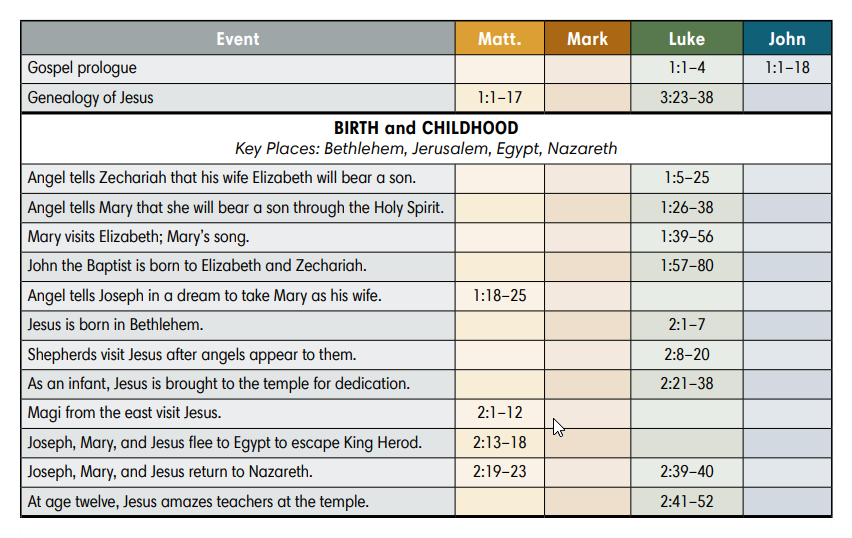
For Christians, Christmas is a time of joy and celebration commemorating the birth of our Lord Jesus Christ. While the holiday is often associated with festivities and gift-giving, it is essential to remember the true significance of Christmas – the story of God’s redemption through the Incarnation.
In order to understand why God coming in the form of man to rescue humanity from God’s wrath is at the heart of the Christmas story; we must turn to Scripture, the teachings of our Church Fathers, and Protestant Reformers. Let us explore this profound truth and its implications.
The Need for Redemption
Scripture teaches us that all humanity is in need of redemption due to sin. Romans 3:23 states, “For all have sinned and fall short of the glory of God.” Our rebellion against God’s perfect standards separates us from Him and invokes His righteous wrath.
Enter by the narrow gate. For the gate is wide and the way is easy that leads to destruction, and those who enter by it are many. For the gate is narrow and the way is hard that leads to life, and those who find it are few. Matthew 7:13-14 Whoever believes in the Son has eternal life; whoever does not obey the Son shall not see life, but the wrath of God remains on him. John 3:36 If anyone does not abide in Me he is thrown away like a branch and withers; and the branches are gathered, thrown into the fire, and burned. John 15:6 For the wrath of God is revealed from heaven against all ungodliness and unrighteousness of men, who by their unrighteousness suppress the truth. Romans 1:18

John Calvin, a prominent Protestant Reformer, emphasized the seriousness of sin and its consequences. He wrote, “We are but dead men until God quickens us by his grace alone…we never cease fighting against God until he has brought us to his obedience by the Holy Spirit … we see secret compacts, poisonings spittings, malices, treasons, and wicked practices. To be brief, we see some so devilish that they fling themselves altogether headlong, as though they meant to make war willfully against God.“ This highlights the desperate need for redemption from the wrath of God.
He has delivered us from the domain of darkness and transferred us to the kingdom of his beloved Son, in whom we have redemption, the forgiveness of sins. Colossians 1:13-14
The Incarnation: God’s Divine Plan
An angel of the Lord appeared to him in a dream, saying, “Joseph, son of David, do not fear to take Mary as your wife, for that which is conceived in her is from the Holy Spirit. She will bear a son, and you shall call His name Jesus, for He will save his people from their sins.” Matthew 1:20–21
The Christmas story reveals God’s divine plan to rescue humanity from the bondage of sin and restore the broken relationship between God and man. God the Father sent God the Son who was conceived by God the Holy Spirit. The central event of the Incarnation, where God took on human flesh in the person of Jesus Christ, is a glorious expression of God’s grace and mercy.
And the Word became flesh and dwelt among us, and we have seen his glory, glory as of the only Son from the Father, full of grace and truth. John 1:14
The early church father Irenaeus tells us, “Now this is His Word, our Lord Jesus Christ, who in the last times was made a man among men, that He might join the end to the beginning, that is, man to God.” The Apostle Paul captures the significance of the Incarnation in Philippians 2:7-8, stating, “but (Jesus) emptied Himself, by taking the form of a servant, being born in the likeness of men. And being found in human form, He humbled Himself by becoming obedient to the point of death, even death on a cross.” This selfless act of God becoming man demonstrates His immense mercy and grace for humanity.
Perspectives on the Incarnation
For the law was given through Moses; grace and truth came through Jesus Christ. No one has ever seen God; the only God, who is at the Father's side, He has made Him known. John 1:17-18
The Protestant Reformers recognized the profound implications of the Incarnation in the context of God’s redemptive plan. Martin Luther, a key figure in the Reformation, wrote, “For this is the reason why Christ is born of a virgin: that, by the same plan, through the same means, by which He became man, He might also become the Lamb of God, who takes away the sin of the world.”
Athanasius proclaimed, “The Son of God became man so that we might become like God.” Irenaeus stated, “For this is why the Word became man, and the Son of God became the Son of man: so that man, by entering into communion with the Word and thus receiving divine sonship, might become a son of God.” These statements encapsulate the transformative power of the Incarnation, offering humanity the opportunity to be reconciled with God and partake in His divine nature.
The Atonement: Rescuing Humanity from God’s Wrath
Jesus’ birth was just the beginning of His mission on earth. The ultimate purpose of His coming was to provide atonement for humanity’s sins and rescue us from God’s wrath. The Reformers emphasized the significance of Christ’s sacrificial death on the cross as the means of redemption.
John Calvin stated, “The Son of God, utterly clean of all fault, nevertheless took upon Himself the shame and reproach of our iniquities, and in return clothed us with His purity. …liberation from the death to which we were bound, and mortification of the flesh.” The perfect sacrifice of Jesus on the cross satisfied God’s justice and appeased His righteous wrath, enabling His people to receive forgiveness and reconciliation in Him.
But when Christ appeared as a high priest of the good things that have come, then through the greater and more perfect tent (not made with hands, that is, not of this creation) He entered once for all into the holy places, not by means of the blood of goats and calves but by means of His own blood, thus securing an eternal redemption. Hebrews 9:11-12 knowing that you were ransomed from the futile ways inherited from your forefathers, not with perishable things such as silver or gold, but with the precious blood of Christ, like that of a lamb without blemish or spot. 1 Peter 1:18-19
Celebrating the Christmas Story
As we celebrate Christmas, let us remember the true essence of the holiday. It is a time to reflect on God’s incredible mercy and grace, manifested through the Incarnation. Through Jesus Christ, God bridges the gap between Himself and mankind, offering salvation and eternal life to all who believe.
May the Christmas story inspire us to embrace God’s redemptive plan, seek reconciliation with Him, and extend His grace and mercy to others. Let us rejoice in the miracle of the Incarnation, for it is a foundation of our faith and the reason we celebrate Christmas.
Remember, the Christmas story is not merely a historical event but a profound demonstration of God’s mercy, love, and grace. As we gather with our loved ones and exchange gifts, let us never forget the ultimate gift – the gift of salvation through Jesus Christ our Lord the Son of God.
Have you received God’s gift?
Come to Christ.
This article was inspired by a quote by Pastor William Shifflett, pastor for Reasoning Tree Church.














